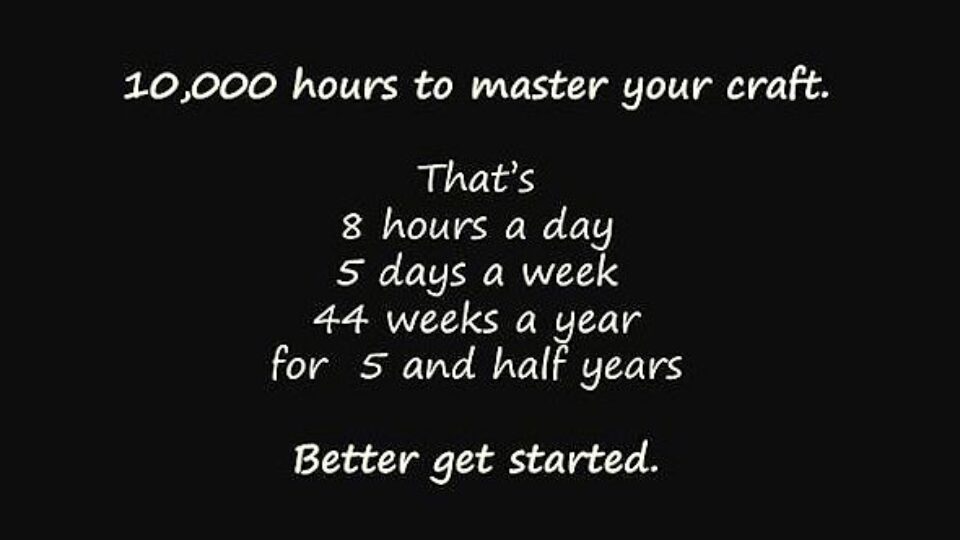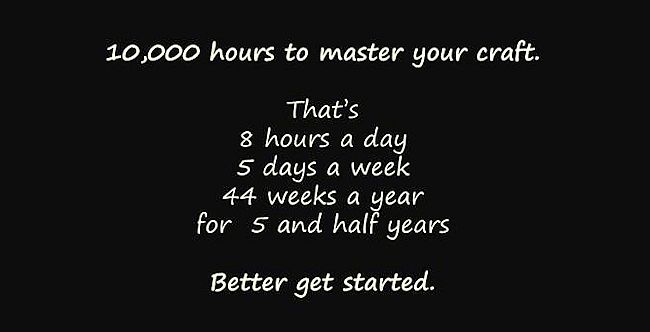
19 Sep2016

share



Click here to read the full article on the BBC website
One man who decided to test it is Dan McLaughlin, 34, a former commercial photographer from Portland, Oregon.
“The idea came in 2009. I was visiting my brother and we decided to play a par three, nine-hole course,” he says. “I had never really been on a golf course and went out and shot a 57, which is horrible. It’s 30 over par on an easy nine-hole course.”
Far from being discouraged by his apparent lack of any natural talent for golf, Dan and his brother started talking about what it would take to become a professional golfer. Dan soon decided he wanted to try.
“When I announced I was going to quit my job, my co-workers started bringing books in and I read Malcolm Gladwell’s Outliers, Geoff Colvin’s Talent is Overrated and The Talent Code by Daniel Coyle,” he says. “These books all had this idea of 10,000 hours in them.”
The 10,000-hours concept can be traced back to a 1993 paper written by Anders Ericsson, a Professor at the University of Colorado, called The Role of Deliberate Practice in the Acquisition of Expert Performance.
It highlighted the work of a group of psychologists in Berlin, who had studied the practice habits of violin students in childhood, adolescence and adulthood.
All had begun playing at roughly five years of age with similar practice times. However, at age eight, practice times began to diverge. By age 20, the elite performers had averaged more than 10,000 hours of practice each, while the less able performers had only done 4,000 hours of practice.
The psychologists didn’t see any naturally gifted performers emerge and this surprised them. If natural talent had played a role it wouldn’t have been unreasonable to expect gifted performers to emerge after, say, 5,000 hours.
Anders Ericsson concluded that “many characteristics once believed to reflect innate talent are actually the result of intense practice extended for a minimum of 10 years”.
One of the difficulties with assessing whether expert-level performance can be obtained just through practice is that most studies are done after the subjects have reached that level.
It would be better to follow the progress of someone with no innate talent in a particular discipline who chooses to complete 10,000 hours of deliberate practice in it.
And we can, thanks to our wannabe professional golfer, Dan McLaughlin.
“I began the plan in April 2010 and I basically putted from one foot and slowly worked away from the hole,” he says.
“Eighteen months into it I hit my first driver and now it’s approaching four years and I’m about half way. So I’m 5,000 hours into the project. My current handicap is right at a 4.1 and the goal is to get down to a plus handicap [below zero] where I have the skill set to compete in a legitimate PGA tour event.”
David Epstein hopes that McLaughlin can reach his goal, but he has some doubts. In the sporting world innate ability is mandatory, he believes.
But is there a simpler way to think about all this? Maybe talented people just practise more and try harder at the thing they’re already good at – because they enjoy it?
What Dan McLaughlin is hoping is that what he lacks in innate talent he more than makes up for with his 10,000 hours of deliberate practice.